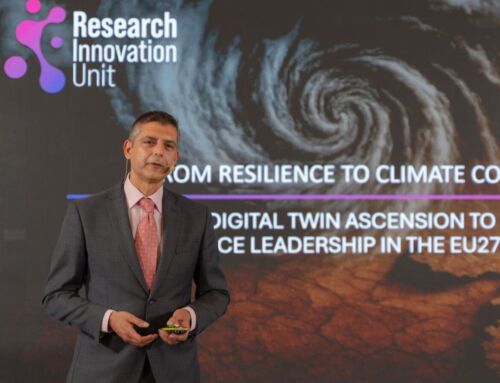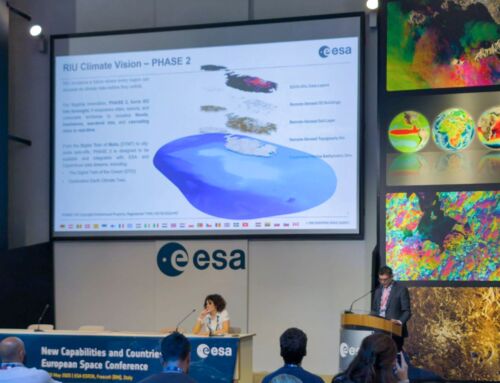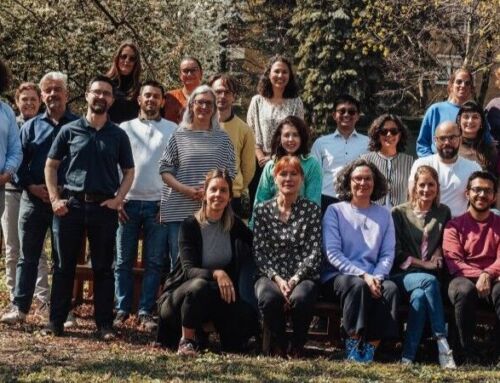The urgency of just sustainability transitions has become increasingly evident in the wake of the European Environment Agency’s (EEA) recent publication, Just Sustainability Transitions — From Concept to Practice. While the report provides insight into the multifaceted approaches taken by various European regions, Gzira’s groundbreaking efforts through the JUSTNature project deserve focused attention. The JUSTNature initiative, locally led by the Research Innovation Unit (RIU) and project partner University of Malta, embodies the principles highlighted by the EEA, positioning Gzira as a beacon of equitable and sustainable urban transformation.
EEA’s Vision for Justice in Sustainability
The EEA report underscores that achieving sustainability isn’t just about environmental goals; it must also incorporate fairness across social and economic dimensions. The report breaks down justice into three categories: distributional, procedural, and recognitional. Each plays a critical role in ensuring that the transition to sustainability benefits all stakeholders equitably. It calls for holistic solutions that address systemic disparities and empower marginalized communities.
JUSTNature: Gzira’s Aligned Strategy
JUSTNature Gzira project aligns seamlessly with the EEA’s vision. Initiated under the Horizon 2020 framework (Grant Agreement No. 101003757), the project aims to activate nature-based solutions (NBS) that promote a just, low-carbon transition. The project is distinguished by its commitment to integrating community needs with environmental strategies, ensuring that social justice is not an afterthought but a driving force in sustainability planning.
NBS and Justice: Core Components of JUSTNature
The JUSTNature project leverages nature-based solutions to simultaneously address climate adaptation and social equity. This dual focus resonates with the EEA’s emphasis on holistic approaches that balance ecological benefits with human well-being. By involving stakeholders at every stage, JUSTNature exemplifies procedural justice, ensuring community voices are central in shaping the urban landscape.
Addressing Distributional Justice
Distributional justice within JUSTNature is evident in how resources and benefits are shared among Gżira’s diverse community. The project prioritizes equal access to green spaces, cleaner air, and cooling solutions that mitigate urban heat islands, a growing concern for Malta’s urban zones. The equitable allocation of such resources, especially in densely populated areas, aligns with the EU’s Just Transition Mechanism and supports a fair division of environmental benefits.
Procedural Justice Through Inclusive Participation
JUSTNature sets a benchmark for procedural justice by involving local organizations, educational institutions like the University of Malta and Stella Maris College, and international partners in a collaborative governance model. This participatory approach ensures that policies and initiatives are co-created with those affected, enhancing transparency and trust. Such engagement goes beyond mere consultation, fostering a sense of ownership among residents and stakeholders.
Recognitional Justice and Cultural Sensitivity
JUSTNature’s respect for local traditions and cultural identity exemplifies Gzira’s commitment to recognitional justice. The project incorporates insights from community members, acknowledging the unique socio-cultural fabric of the Gżira locality. This respect for cultural heritage is crucial for gaining broad public support and ensuring that solutions are locally relevant and sustainable.
Challenges and Lessons Learned
While Gzira’s progress is commendable, JUSTNature has encountered challenges that reflect broader EU sustainability efforts. Integrating NBS in urban planning must often compete with commercial interests and space constraints. However, through the RIU, the University of Malta, and support from European research entities, the Gzira Local Council has successfully navigated these challenges, serving as a learning model for similar European projects.
Broader Implications for EU and Global Strategies
JUSTNature’s approach provides valuable lessons for other small and medium-sized urban areas seeking to implement just sustainability transitions. Gzira demonstrates that even smaller towns can lead by example by aligning with overarching EU policies such as the European Green Deal and the Sustainable Development Goals (SDGs). The project’s methodologies and community-driven solutions can inspire broader applications across Europe and beyond.
JUSTNature project illustrates that justice can and must be a pillar of sustainability efforts. By championing distributional, procedural, and recognitional justice, the project proves that achieving environmental goals is not just a technical challenge but a social one. As Europe navigates the complexities of climate action, Gzira’s dedication to inclusive, justice-centred sustainability provides a template for future initiatives. It calls for continued collaboration among EU member states, ensuring no community is left behind in the green transition.
Call to Action
As we progress, policymakers, local governments, and researchers must draw inspiration from projects like JUSTNature. By embedding justice into the core of sustainability strategies, Europe can achieve a greener future and a fairer one for all its citizens.






